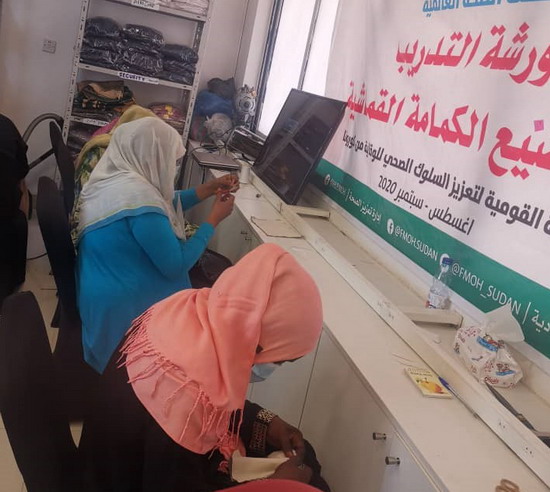
10 August 2020 - As part of the COVID-19 response, WHO and the Federal Ministry of Health are holding a workshop for local communities on producing fabric face masks. The activity is part of the bigger “Safe return” campaign, undertaken in partnership with the Ministry, UNICEF and other partners, which aims to help people resume their work and lives by applying the correct preventive measures and adapting them to the local context.
This comes at a time when regulations such as the lockdown and the travel bans are being lifted as part of a normalization plan to enable people to resume the lives they had before the lockdown. The campaign aims to encourage responsible behaviour through using community engagement and advocacy to emphasize the importance of applying preventive measures such as hand washing, avoiding hand shaking, physical distancing and wearing face masks as part of daily life.
As part of this campaign, WHO is supporting the training of 235 community members in Khartoum on the importance of masks and the production of fabric ones that can be washed and reused multiple times. The training aims to develop the skills needed to produce fabric masks as a way to address the shortage of masks and ensure that surgical masks are reserved for health workers.
One of the most important measures to reduce the spread of the COVID-19 virus is wearing masks in daily life. Although most COVID-19 preventive measures are relatively easy to adopt through behaviour modification, the public can find the use of face masks a challenge, especially in underprivileged communities that cannot obtain a continuous supply of single use medical masks.
Through developing sewing skills and learning to make masks, by the end of their training community members will be able transfer their knowledge and train their communities on local face mask production according to WHO guidelines, enabling them to locally produce good quality fabric masks. The training will not only raise community awareness and encourage responsible behaviour, it will serve as a model to be replicated within communities in Khartoum that can empower community members, especially women.





